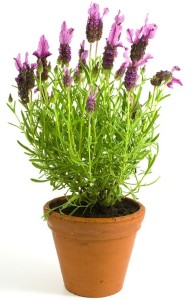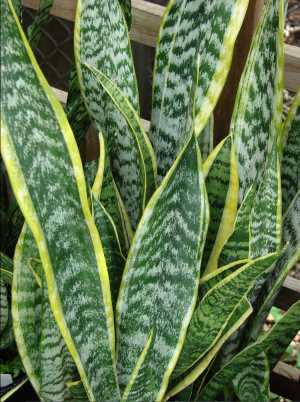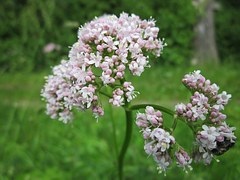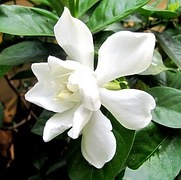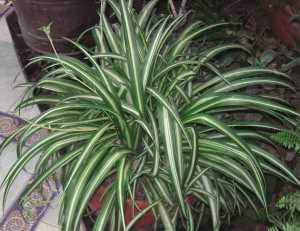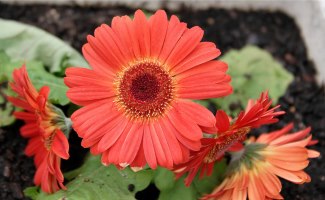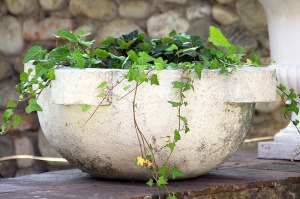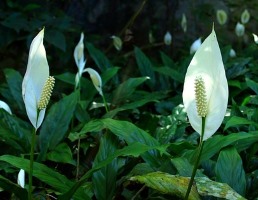Bedroom Plants That May Help You Relax and Sleep Better: Jasmine, Lavender and More
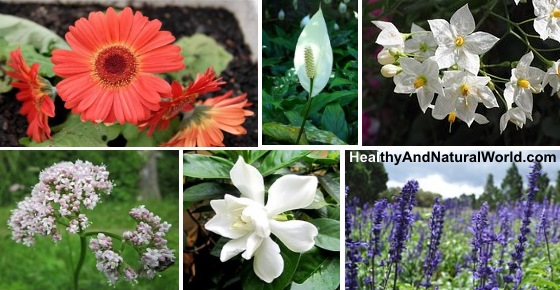
People who have trouble sleeping from time to time will be glad to know that there are many bedroom plants that can help to purify the air and help you sleep. The smell of some bedroom plants like jasmine can be as strong as sedative and help you relax and fall asleep. Other calming plants such as lavender and gardenia can also help you sleep and enhance the quality of your sleep.
Having houseplants can be a nice way to bring the beauty of the outdoors inside, adding a splash of color and helping to act as natural air purifier, by taking in carbon dioxide and giving off fresh oxygen as part of their natural life cycle.
Is It Good to Have Plants In Your Bedroom?
There is an ongoing debate whether it’s a good idea to keep plants in your bedroom. The reason for this argument is that during the photosynthesis process, plant take in carbon dioxide (CO2) and emit oxygen, but because plants require light to photosynthesize, at night the process reverses and plants take in oxygen while emitting carbon dioxide.
However plants in your bedroom use far less oxygen than is usually deemed by many who are against it. And as you will see later on, some plants, like the snake plant (also called viper’s bowstring hemp), usually emit oxygen at night unlike other plants thus benefiting you even more.
Top 10 Bedroom Plants
Here are our top 10 choices for plants that are perfect to keep in the bedroom, day and night.
Jasmine
The Smell of Jasmine can be as Calming as Valium
Jasmine is a plant with lovely little white flowers and a sharply sweet scent that has been touted for its relaxing qualities since ancient times. Its name derived from the Persian yasmin which means “a gift from God” because of the intense fragrance of the blooms.
The smell of jasmine can be as strong as sedative. Researchers from Germany discovered that chemical substances in the fragrance of jasmine flowers work in the same way as commonly prescribed sedatives.
Instead of taking a sleeping pill or a mood enhancer, a smell of jasmine from Gardenia jasminoides could also help you fall asleep.
Laboratory tests found the fragrance of jasmine dramatically calmed mice when their cage was filled with it, causing them to cease all activity and sit quietly in a corner.
The scent of jasmine is linked to reduced anxiety levels and improved sleep quality. Its sedative properties were shown in a Wheeling Jesuit University study: “When the effects of the jasmine odor were compared to the effects of the lavender odor and the non-odor control condition, the dispensing of jasmine led to greater sleep efficiency and reduced sleep movement.”1
Jasmine essential oil is also one of the best essential oils for anxiety and depression.
Related: 10 best air filtering house plants according to NASA
Lavender
Lavender is another scent that has been thought throughout time to have a calming effect.
One 2008 study performed by researchers from the University of Miami Miller School of Medicine8 found that the smell of lavender helped to soothe fussy babies and lull them into a deeper stage of slumber.
A review of medical studies said that “lavender is used in pharmacy, phytotherapy and aromatherapy to treat central nervous system disorders, such as anxiety, stress, and sleep disorders.”
As an alternative to growing lavender you can try to use lavender essential oil which is also one of the best essential oils for better sleep.
The power of lavender transcends age—it can be relaxing and pleasant to smell for people of all ages. Lavender-scented lotions and oils abound on the commercial market, but why not go straight to the source to reap nature’s rewards from the lavender plant?
Snake plant (Sansevieria Trifasciata or Viper’s Bowstring-hemp)
The snake plant (viper’s bowstring-hemp) is one of the 10 best air filtering house plants according to NASA. This indoor plant is wonderful for cleaning out your bedroom’s air both day and night, and its simple green-and-yellow leaves can fit nicely with any décor. It is also one of the best shower plants to keep in your bathroom.
While some plants take in oxygen during the dark hours, the snake plant emits oxygen during the nighttime, making your bedroom’s air fresh and clean, naturally—no matter what time of day it is.
Valerian
The hypnotic effects of valerian have been proven by science,4 as one 2004 study conducted by a team of neuroscience researchers from Japan showed that simply inhaling the scent of its pink flowers was sufficient to heighten the activity of the brain’s GABA system, the system responsible for relaxing the body and preparing it for sleep.
Valerian root is also one of the best 12 herbs for insomnia. It is used as a sedative and anti-anxiety treatment, and is a common ingredient in products promoted as mild sedatives and sleep aids for nervous tension and insomnia
The valerian plant is not only pretty to look upon, but perfect for helping the insomniac get better-quality sleep.
Gardenia
Just like jasmine plants, gardenias have white blooms and a beautiful scent—and they can also have a noteworthy sedative effect on those who inhale their fragrance.
In study from 2010 conducted by scientists from Heinrich Heine University in Düsseldorf showed that gardenia was just as effective as valium in helping the body and brain to relax.5
Instead of using sleeping pills, consider keeping a gardenia plant on your bedside table to enhance relaxation in your bedroom using the therapeutic power of scent.
Aloe Vera
Aloe vera is one of nature’s miracle plants: its gel can help heal cuts faster (read my article about the amazing benefits and uses of aloe vera for skin), aid in digestion (read my article why you should start drinking aloe vera juice), and it has myriad other helpful healing properties.
Just having an aloe vera plant in your bedroom can also be a good idea, as it turns out. Like the snake plant, the aloe vera plant lets out oxygen during the evening, leaving your nighttime air fresher and cleaner for a more restful sleep. It’s also notoriously easy to care for, as it doesn’t require frequent watering or special care like some other plants.
Spider plant (Chlorophytum Comosum)
The spider plant is an amazing natural air purifier, with the ability to remove harmful formaldehyde from the air you breathe with efficiency that is awe-inspiring. In a study conducted by NASA, spider plants were shown to remove up to 90 percent of formaldehyde in the air surrounding them. For fresher air while you get your shut-eye, keep a spider plant or two on a bedroom shelf.
Gerbera daisy
Although not quite as easy to care for as the aloe vera plant or snake plant, the gerbera daisy plant has lovely blooms that bring cheer to any space. Like the aloe vera plant and snake plant, the gerbera daisy does overtime while you sleep, releasing extra oxygen into the air during the nighttime. This makes it an ideal plant for an insomniac looking for a way to brighten the room while increasing the oxygen levels of their bedroom’s air.
English ivy plant (Hedera Helix)
In the same NASA study which showed the detoxifying effects of the spider plant, the English ivy plant was found to be a top-notch air purifier, making it ideal for bedrooms in need of fresh air. According to research,3 it helps allergy sufferers by purifying the air around it.
Note: English ivy plants, although helpful for cleaning the air, are toxic if ingested. Opt for a different plant in the bedroom if you have small children or pets who may eat the leaves.
Peace lily (Spathiphyllum)
Touting the ability to remove not only formaldehyde but also benzene from the air around it,1 the peace lily plant can clear the air and help keep dry environments more moist, upping humidity levels up to 5 percent in the rooms they are in.
This makes them ideal for dry climates—and they make far less noise than an electric air humidifier! They are also low-maintenance, requiring watering only once a week on average.
Another fantastic option to combine with these plants is Himalayan Salt Lamp which can greatly help you clear the electronic smog in your bedroom. Or you can use one of my essential oil blend recipes for insomnia and better sleep.
Read my other articles about how to get a better sleep:
- Simple Trick for Falling Asleep in 1 Minute
- Essential Oils For Insomnia & Better Sleep
- A Simple 2 Ingredient Recipe for a Great Sleep
- Common Causes for Feeling Tired or Sleepy After Eating
Resources:
(1) http://www.wju.edu/about/adm_news_story.asp?iNewsID=539&strBack=/about/adm_news_archive.asp
(2) http://www.sciencedirect.com/science/article/pii/S0944711304702196
(3) http://www.webmd.com/allergies/news/20051107/english-ivy-fix-allergies
(4) http://www.ncbi.nlm.nih.gov/pubmed/16857858
(5) http://aktuell.ruhr-uni-bochum.de/pm2010/pm00222.html.en
(6) http://www.goodshomedesign.com/8-plants-for-your-bedroom-to-help-you-sleep/1/
(7) http://infromthegarden.com/plants-bedroom-harmful-helpful/
(8) http://www.ncbi.nlm.nih.gov/pubmed/18053656
(2) http://www.sciencedirect.com/science/article/pii/S0944711304702196
(3) http://www.webmd.com/allergies/news/20051107/english-ivy-fix-allergies
(4) http://www.ncbi.nlm.nih.gov/pubmed/16857858
(5) http://aktuell.ruhr-uni-bochum.de/pm2010/pm00222.html.en
(6) http://www.goodshomedesign.com/8-plants-for-your-bedroom-to-help-you-sleep/1/
(7) http://infromthegarden.com/plants-bedroom-harmful-helpful/
(8) http://www.ncbi.nlm.nih.gov/pubmed/18053656


